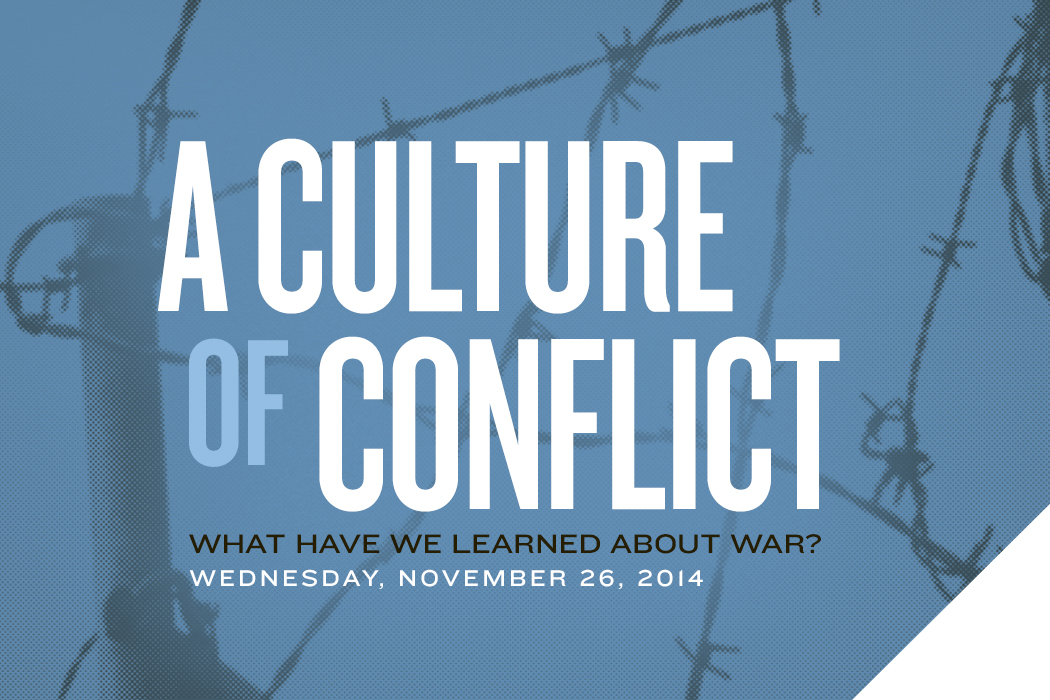
What have we learned about war?
2014 marks the 100th anniversary of the start of World War I, the 75th anniversary of the start of World War II and the 25th anniversary of the end of the Cold War. With that in mind this week’s Visionary Conversations asked a question that sparked debate from the panellists and attendees: What have we learned about war?
Special guest host CBC Radio’s Terry MacLeod moderated the panel, which included Adam Muller, associate professor in English, film and theatre and senior research fellow at the Centre for Defence and Security Studies, Andrea Charron, assistant professor in political Studies and deputy-director of the Centre for Defence and Security Studies, and Régine King, assistant professor in the Faculty of Social Work. Each panelist approached the topic of conflict from his or her own unique angle.
Adam Muller began by discussing how photographs and other visuals have become the medium of our recounting of war. “At their best, images allow us to connect intimately and emotionally with another person’s experience of war, humanizing the photographic subject, sometimes in unexpected ways,” said Muller. “At worst, images turn us into idle spectators, uncaring consumers of other peoples’ objectified pain and suffering.”
In the past one hundred years, warfare has changed to involve mostly nation-states. Andrea Charron shared some thoughts on the roles of states in armed conflicts: “States, although responsible for instigating war, are also responsible for mitigating and ending war.” Looking at the role of the state in warfare led to the question posed by Charron at the end of her presentation, “Do intervention efforts by states help end war? Or do they make things worse.”
The final presentation of the night was by Régine King, whose research interest includes social processes in post-genocide Rwanda, women’s rights and psychological well-being of survivors of organized violence. As a survivor of the Tutsi genocide in Rwanda, she is able to bring a very unique and valuable perspective to peace-building.
King reminded attendees of the importance of relying on local people. “Why are we failing in our peace-building efforts?” she asked. “We use methods that overlook local issues and ignore local actors. Strategic peace-building begins with eliciting local knowledge.” Later in the evening King mentioned that it was the Rwanda Patriotic Army, a local guerrilla group that ended the genocide in her home country, not the international community.
The most urgent question was posed at the very end of the discussion, “What can we do to stop these wars?”
Régine King affirmed each individual’s role in ending armed conflict, whether in Winnipeg, Rwanda, Missouri or Iraq. “We should invest in peace at any level we can,” she said.
For more on this topic, visit the After the Conversation page. You can watch the entire discussion below.






